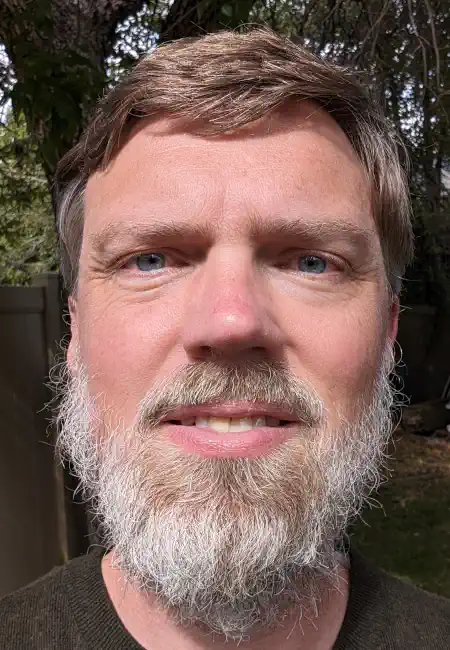

I live in Provo, Utah and work with Internet-related projects: web applications, databases, scalability, system administration, and security, and in the past, ecommerce and Android app development. I’m a radio amateur (“ham”) with call sign KG7TXN.
I sometimes write on Somusing, the blog of my wife, Erin, and wrote a lot on the End Point blog when I worked there.
Other places to find me on the web:
![]() LinkedIn
LinkedIn
![]() Twitter
Twitter
![]() Facebook
Facebook
![]() Instagram
Instagram
My email address is jon@swelter.net — since 1999! You may encrypt messages to me using PGP/GnuPG with my current public keys (2019 ed25519 ECC key, 2012 4096-bit RSA key), which superseded my historical keys (1998 DSA key, 1994 RSA key).
[quotation #48 of collection of 889 · previous · next · another random quotation]
I should probably say first that the kind of hope I often think about (especially in situations that are particularly hopeless, such as prison) I understand above all as a state of mind, not a state of the world. Either we have hope within us or we don’t; it is a dimension of the soul, and it’s not essentially dependent on some particular observation of the world or estimate of the situation. Hope is not prognostication. It is an orientation of the spirit, an orientation of the heart; it transcends the world that is immediately experienced, and is anchored somewhere beyond its horizons. I don’t think you can explain it as a mere derivative of something here, of some movement, or of some favorable signs in the world. I feel that its deepest roots are in the transcendental, just as the roots of human responsibility are, though of course I can’t—unlike Christians, for instance—say anything concrete about the transcendental. An individual may affirm or deny that his hope is so rooted, but this does nothing to change my conviction (which is more than just a conviction; it’s an inner experience). The most convinced materialist and atheist may have more of this genuine, transcendentally rooted inner hope (this is my view, not his) than ten metaphysicians together.A map of the route my son & I took on our 2019 trip to Armenia, Georgia, Ukraine, and Moldova: Jon and Seth itinerary in June 2019.
An interactive map of various churches we visited in north England in 2013, with links to our blog posts and photos about each: Churches in north England, 2013.
Presentation slides from talks I have given at technical conferences and company-wide meetings are available.
I support free software and open source. Don’t be a sharecropper!
I am on GitHub as jonjensen and have contributed to projects including PostgreSQL, Interchange, DevCamps, and Bucardo. I also keep old miscellaneous scripts around.
Other free software I work most often with:
awesome,
X.Org X11,
Sway,
Wayland,
alacritty,
kitty,
tmux,
Screen,
zsh,
bash,
Firefox,
Chromium,
Vim,
Git,
Rust,
Go,
Perl,
Python,
Ruby,
PHP,
PostgreSQL,
Linux (mostly
Red Hat/
Once upon a time I created some RPM packages of free software for use on Fedora Linux. The source RPMs may still prove useful for building on a newer version.
Some Unicode things I keep handy:
Language family maps for reference:
My novice linguistics research: I wrote a paper for Linguistics 490 (senior seminar) taught by John Robertson, winter semester 1998 at Brigham Young University. It examines how Hebrew verb patterns (binyanim) may be semantically grouped using C.S. Peirce’s universal categories. The paper: Hebrew Verb Pattern Tendencies Clarified by Peirce’s Universal Categories (8.5″ x 11″). Reference chart: Roots in various binyanim chart (11″ x 17″).
Some of my free verse:
Many years ago, a tree fell on our car, so I wrote up the story to share.
A few organizations I support:
Links about religion:
Johann Sebastian Bach composed some of my favorite music. See these freely redistributable Bach sheet music PDFs and the James Kibbie complete Bach organ works recordings. Mutopia collects freely usable music scores. Thanks to those who typeset the music and gave it away!
Hymns:
mod.zayda.net is a collection of old Amiga-era music “modules”, including the whole U4ia and F8 collection by Jim Young, mostly created on his Amiga.
End communication.